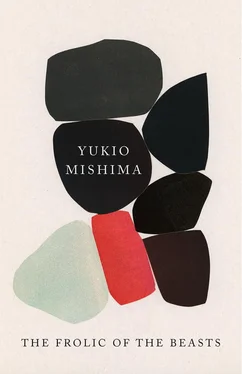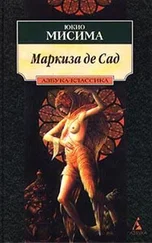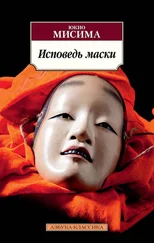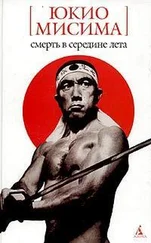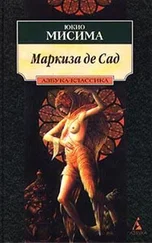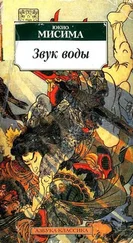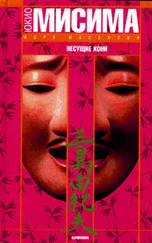Yūko knew full well just how much of a fun-loving, hotheaded youth Kōji had been two years earlier. Ippei had a Western ceramics shop in Ginza and during the busy seasons such as the summer holidays and year-end he hired students from his alma mater to work on a temporary basis. Kōji had measured up to Ippei’s requirements, and he was able to continue the side job out of season, as well as being welcome at Ippei’s residence in Shibashirogane.
Ippei had graduated with a degree in German literature, and after working for a while as a lecturer at another private university he inherited his parents’ Ginza shop, where he continued to write highbrow literary critiques, for which he had acquired something of a reputation. His works were extremely few in number, but he had an avid following among his readers and his older books, which had since gone out of print, commanded high prices. He produced translations and commentaries on the works of authors like Hofmannsthal and Stefan George, and he had also written a critical biography of Li He. His literary style was exquisitely refined and displayed none of the businesslike aspects inherent to his ceramics trading, but instead was brimming with the cool eccentricity and embellishment characterizing a lover of art.
As a consequence of halfheartedly dabbling in spiritual matters, this kind of person tends unwittingly to acquire the privilege of contempt for the generality of spiritual activities otherwise unknown to the average human and becomes a strangely vacant and sensual being.
Right from the start of his side job, Kōji was astonished at how busy Ippei was with his love affairs. Of course, Kōji remained detached from these matters, which had nothing whatsoever to do with him. On one occasion, as he was about to finish work and go home, Ippei had been extremely friendly, calling him back and suggesting they go for a drink together. As soon as they were settled in the bar, Ippei began to talk.
“You haven’t got any ties at all. I’m really quite envious. No parents, no brothers and sisters, nor relatives. Not even a wife and child. I detest people with splendid families and splendid guarantors. And tell me, I’ll wager you have only enough money to get by on, don’t you?”
“I think I can make do somehow until I graduate on the money my old man left me. But that on its own isn’t enough.”
“That’s okay, isn’t it? You can use what you earn in my shop as spending money.”
“I appreciate it.”
After a moment’s silence, Ippei sipped his drink and said, “I heard you were involved in a fight a couple of days ago.”
Surprised, Kōji stammered slightly: “H-how did you know that?”
“A store assistant heard the story from one of your colleagues; he thought it amusing and came to tell me.”
Kōji scratched his head like an embarrassed schoolboy. Ippei demanded a full explanation, and so Kōji related how that night, after the shop had shut, he and a fellow part-time employee had gone for a drink at a whiskey bar in Shinjuku. As they left a fight began, and having quickly settled the matter, they made off. Ippei was much more interested in Kōji’s state of mind than in the incident itself.
“Is it because you were annoyed? Did you do it because you were angry about something?”
“I don’t really know why. I just lost my temper all of a sudden.” Having never been questioned like this before, Kōji was at a loss to explain.
“You’re twenty-one years old, all alone, so lighthearted, and so quarrelsome. Do you sometimes think yourself extremely romantic?”
Kōji pursed his lips and remained silent, sensing that he was being either ridiculed or afforded praise he didn’t deserve.
“It’s a good thing to be able to fight and express your anger. The future of the world is all but in your hands. After that, ‘old age is all that awaits you.’ There is nothing other than that.”
This obscure quote from ancient poetry sounded terribly affected to Kōji. Ippei posed another question: “I suppose you never feel like the world sometimes slips out of your grasp and escapes from between your fingers like sand, do you?”
“Yeah, I do. And when that happens I start to get angry.”
“Yes, but don’t you see? That’s one of your merits. For so long I have given in to that escaping sand.”
Kōji resented being lectured on his senior’s adulation of life and philosophical sentiments.
“In other words, what you’re trying to say is that I’m just like everyone else?”
He drew a cynical conclusion in an attempt to bring the conversation to an end, and having done so, he glanced sideways at the face of this near forty-year-old wealthy man as it loomed up at him out of the dim light of the bar. Ippei, who had two suits made each month, was dressed in a sober necktie and a pale Italian silk shirt. In every respect he brought to mind the elegant appearance of the man in the French novel L’homme couvert de femmes. He went to a high-class hair salon; though he could afford to pay anytime, he held an account with a first-rate tailor, and out of a sudden fancy, he had obtained a pair of English-made spats, which he had grown tired of wearing almost immediately.
Ippei had everything. At least from Kōji’s point of view, what he didn’t possess wasn’t worth mentioning. And while he may have lost his youth, he made use of the youth of others without reserve, greedily sucking on Kōji, doglike, until the very marrow of the bones had gone. Despite Ippei’s largesse, Kōji didn’t feel inclined to be his characteristic cheerful self. Kōji’s cheerfulness was his well-oiled, well-maintained skates, the means by which he was able to glide along on the surface of life. With friends of the same age, he could ingratiate himself without anxiety. He enjoyed joining in with the families of such friends where compassion would be shown for his orphan status, where he could eat to his heart’s content, and, above all, where he could behave in a slightly egotistical but nevertheless ebullient manner.
Society heaps praise upon those individuals who refuse to be prejudiced against the unfair treatment life has dealt them. Indeed, it is deeply touched by the natural attitude to life displayed by these unnatural individuals. For Kōji, even a fight represented a semi-artificial impulse designed to elicit such praise. It was the expression of an attempt to behave normally in society, although he didn’t consider it necessary to confide such secrets to Ippei. Indeed, was it necessary to impart more than he had already to Ippei? Ippei, who had everything.
On that particular night, Ippei and Kōji drank at the counter. A girl drew near like a shadow but left again, having been ignored by Ippei. The bartender attempted to strike up a friendly conversation, but Ippei didn’t reply and so he moved off to chat with another customer. Dozens of liquor bottles lined up against the wall, cigarette smoke lingered like clouds, the soot-covered ceiling, the fragrance of perfume as girls moved to and fro in the narrow bar… A girl staggered over, on the point of collapse, gripped the far edge of the counter with her hands, and then proceeded to order another scotch soda for her customer in a slovenly tone of voice. Kōji was surprised by the warmth of her arm as it came into contact with his hand. The girl laid her cheek against her exposed forearm and gazed up at him out of drunken eyes.
“Pretending to do gymnastics, huh?” said Kōji.
“Ha, calisthenics more like.”
The girl’s hands were finely strained as they gripped the opposite side of the counter, her silver nails hooked firmly into the thick decorative padding on its side. She repeatedly bumped her large, white, pallid breasts forcibly against the counter’s side.
Читать дальше
